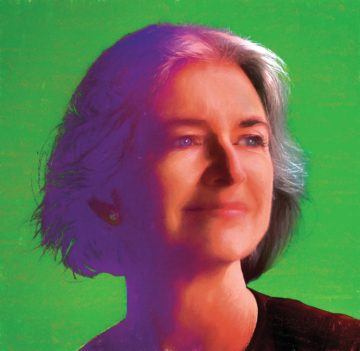David Marchese in The New York Times:
 It’s entirely possible, maybe even likely, that during some slow day at the lab early in her career, Jennifer Doudna, in a moment of private ambition, daydreamed about making a breakthrough that could change the world. But communicating with the world about the ethical ramifications of such a breakthrough? “Definitely not!” says Doudna, who along with Emmanuelle Charpentier won the Nobel Prize in Chemistry in 2020 for their research on CRISPR gene-editing technology. “I’m still on the learning curve with that.” Since 2012, when Doudna and her colleagues shared the findings of work they did on editing bacterial genes, the 58-year-old has become a leading voice in the conversation about how we might use CRISPR — uses that could, and probably will, include tweaking crops to become more drought resistant, curing genetically inheritable medical disorders and, most controversial, editing human embryos. “It’s a little scary, quite honestly,” Doudna says about the possibilities of our CRISPR future. “But it’s also quite exciting.”
It’s entirely possible, maybe even likely, that during some slow day at the lab early in her career, Jennifer Doudna, in a moment of private ambition, daydreamed about making a breakthrough that could change the world. But communicating with the world about the ethical ramifications of such a breakthrough? “Definitely not!” says Doudna, who along with Emmanuelle Charpentier won the Nobel Prize in Chemistry in 2020 for their research on CRISPR gene-editing technology. “I’m still on the learning curve with that.” Since 2012, when Doudna and her colleagues shared the findings of work they did on editing bacterial genes, the 58-year-old has become a leading voice in the conversation about how we might use CRISPR — uses that could, and probably will, include tweaking crops to become more drought resistant, curing genetically inheritable medical disorders and, most controversial, editing human embryos. “It’s a little scary, quite honestly,” Doudna says about the possibilities of our CRISPR future. “But it’s also quite exciting.”
More here.
